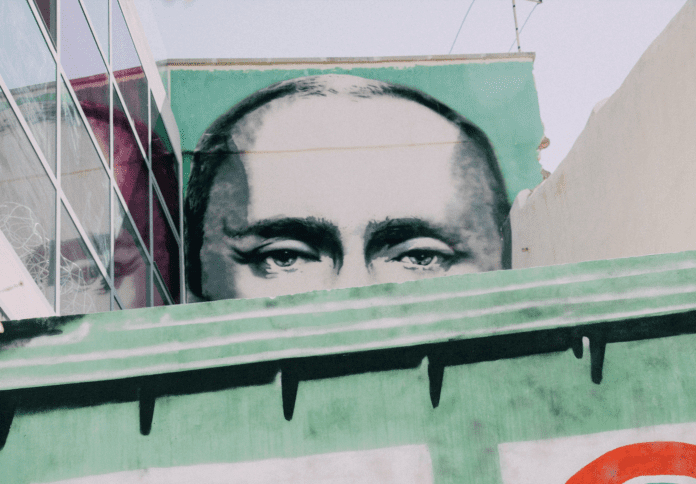You’ve probably heard about what’s happening between Ukraine and Russia right now – if not because a teacher mentioned it in class, then maybe you’ve seen the jokes on Tiktok about how Gen Z is trying to stop WWIII by calling the leader of Russia “Vladdy Daddy”. Even if some of us don’t know what it entails, we’re aware that tensions are building up – and arguably close to exploding – between the two nations. There’s much debate and doubt about whether this conflict will escalate into an actual military confrontation, and if so, how significant it would be, not only for the countries directly involved but also those somewhat at the margin, especially in Europe. Regardless of what side of that debate one is on, these escalations tell us a lot about country’s foreign policy decisions and the state of modern international relations: they are highly motivated by national interests.
This approach is extremely in line with Realist thinking in International Relations, and more specifically, one could say, to a pretty traditional view of Realism that dates back ages. Even assumptions that in modern affairs rarely hold true anymore, such as seeing States as the main actors in International Relations, seem to be pretty fitting for this conflict. What is most insightful to the conflict, however, is the overarching emphasis on power politics, a concept that is often dismissed in a world supposedly driven by cooperation, economic interdependence, and democracy. One mustn’t forget that power politics are still very much a thing.
When I started familiarizing myself with this conflict, even after having read a couple of articles, one question still remained unanswered: why is Ukraine so important to Russia? Would it really gain so much from an invasion, or annexation, that it’s worth it for the Kremlin to further destabilize and increase hostility in regards to its relations with Western powers (especially the EU)? Modern conflict is usually motivated by issues like economic interest, religion, or national identity, and so it took me a while to grasp my head around Russia’s stance towards Ukraine; it’s pretty archaic when it comes to International Relations, because it is a good example of pure power politics. Russia’s actions (or Putin’s actions, since those could pretty much be used interchangeably) seem to be solely based on wanting to retain influence over former USSR eastern European countries – despite Putin’s efforts to camouflage this behind arguments of Ukrainians and Russians being “one people” who should compose a single nation. Not much effort is needed to provide evidence of Russia’s goals considering that they were declared loud and clear by Putin, which is what triggered the escalation of conflict in the first place. In December, the Kremling presented the West with its demands, which were, of course, rejected: committing in stopping the further eastward expansion of NATO; removing NATO troops from Poland and the Baltic states; a possible withdrawal of US nuclear weapons from Europe and, most importantly, a commitment that Ukraine shall never join NATO. The relationship between those goals and Russia retaining and gaining power is self-evident.
Nothing is better to unite a country with internal divisions and government opposition than a common enemy- a tactic long used by Putin. As stated in the Financial Times, “[Putin’s] goal is rather to reinstate or maintain the Kremlin’s control over the former Soviet space more efficiently by creating dependencies, preferably ruled by autocrats, in place of the former Soviet republics — an imperial power structure with him as the ruler of rulers at the top.” This is where Russia’s domestic and foreign policy interests meet – finding this common enemy (the West, now embodied in Ukraine) tones down the internal conflicts in Russia, and furthers its power aims in foreign policy. One could see them as one and the same – Putin getting more power both at home and abroad.
This Realist perspective, that States will only act according to their national interests, can also be applied to Europe’s involvement. There are two main reasons for European nations to mingle in this hot mess: first, because it would set a terrible precedent for International Relations and International Law, considering that Russia already got away with annexing Crimea in 2014. Second, because Europe heavily relies on Russian gas pipelines. The EU has been very invested in attempts to solve the issue peacefully and diplomatically, and is that because they’re so concerned with ensuring that International Laws are respected? That is indeed an added benefit, but more likely than not, what really drives the EU’s peaceful behavior is the fear of having the pipelines cut off by Putin in case an invasion was carried out, since Europe would pretty much have to impose sanctions in response – because it does have a reputation to maintain.
A big problem with this crisis is that no one really knows whether Russia is just bluffing, or if they really would go forward with an invasion. Is Putin weighing the costs and benefits of an invasion, meaning he’s actually considering one? Or has this been just a bluff from the beginning, and Putin never really had the intention of carrying out an invasion but really just wanted to gain bargaining chips with the West? Regardless of what the answer to those questions is, the analysis leads us to predict each sphere of influence to act according to its own interests. Russia’s is, of course, the same as Putin’s: to get as much power as possible – the question is whether invading would lead to that, or just threatening the West and getting benefits out of it. For European nations, in turn, the aim is likely to be the least involved possible without getting negatively affected. Our generation might not be used to seeing pure power politics, but Russia has been showing that it’s still very much real – and the driving force of its actions.










Loved this article, very informed opinion! Keep up the good work!